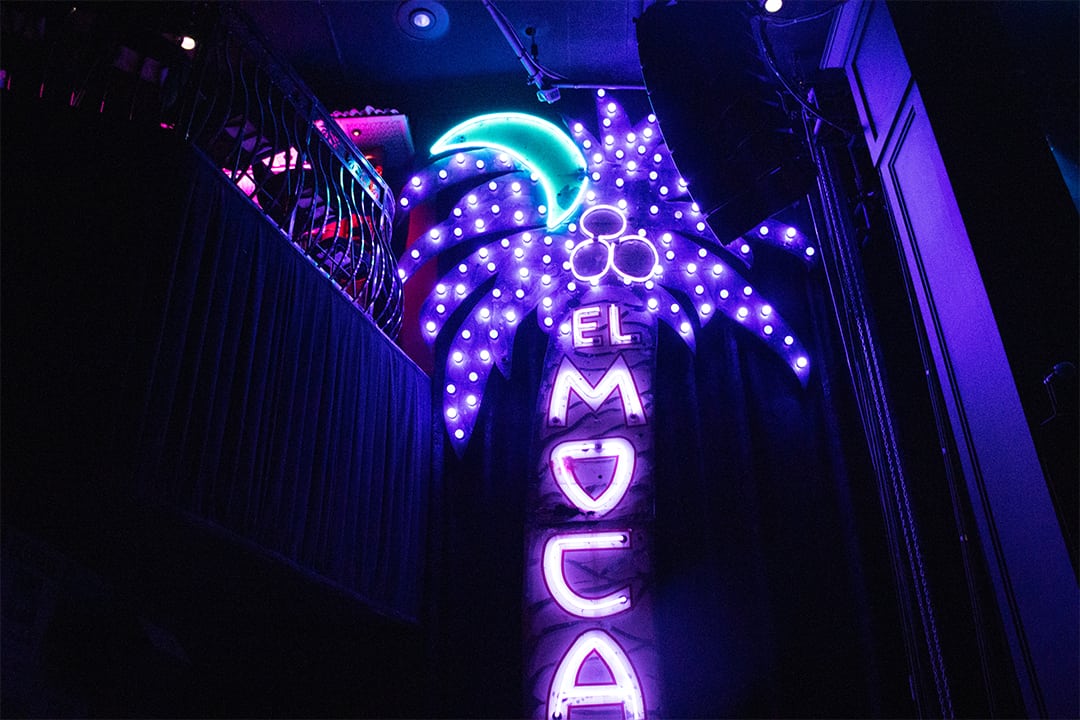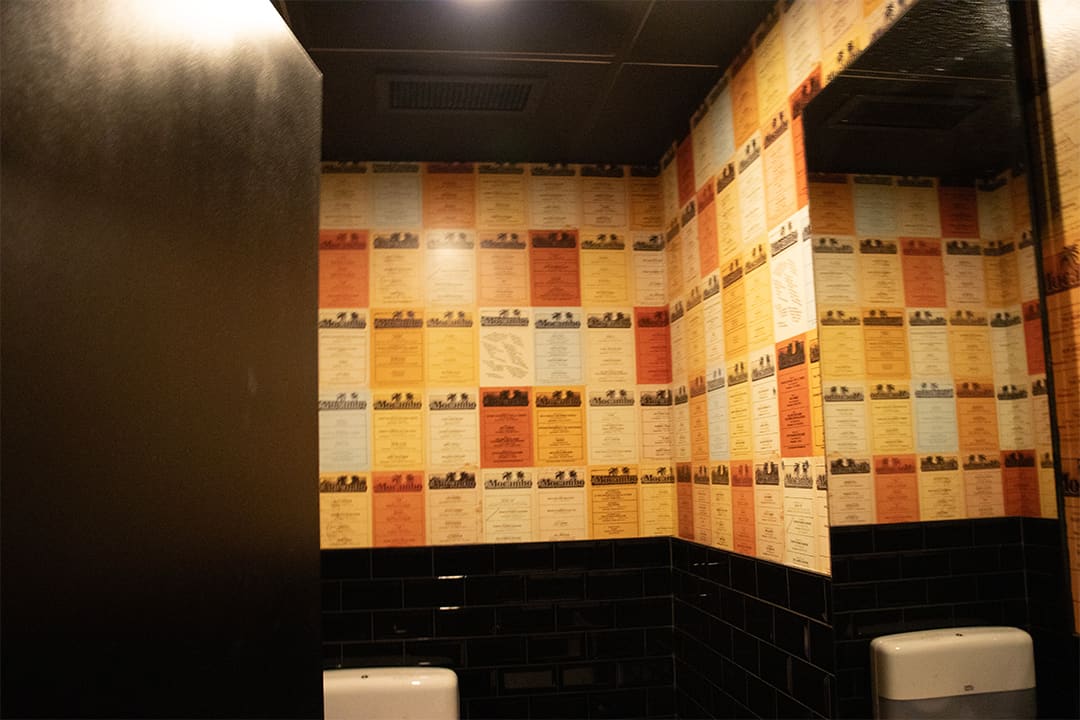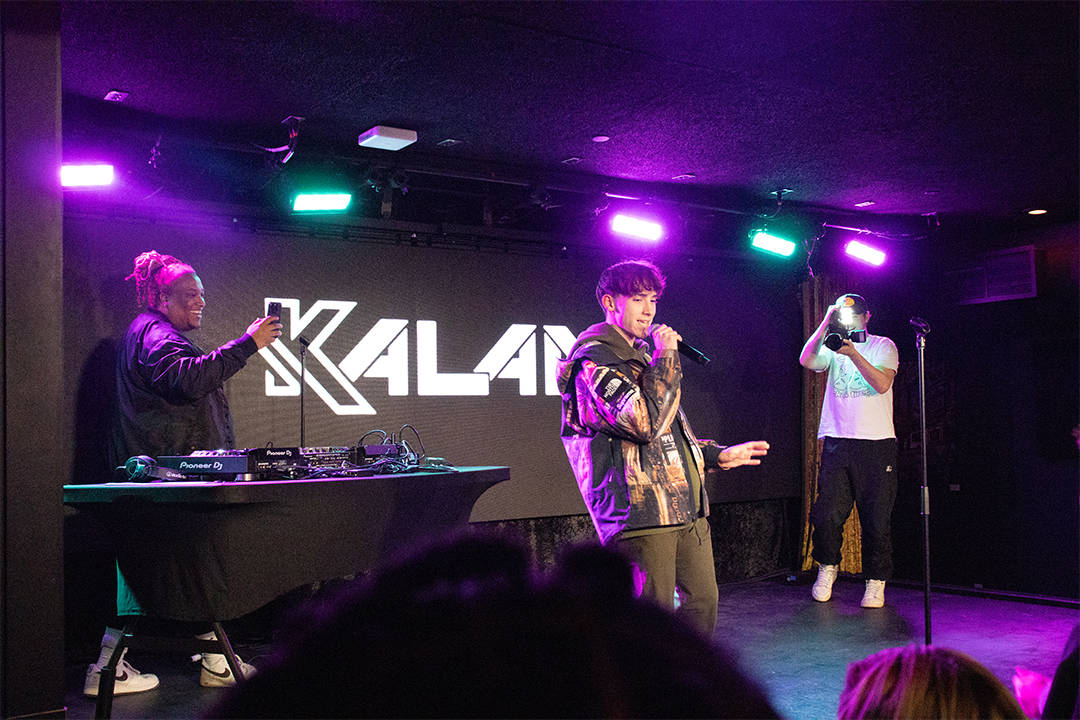Found at Spadina Avenue and College Street, El Mocambo is one of Toronto’s most famous music venues. Since 1946, this venue has featured a variety of performers, from rock bands to comedians to rappers, offering city folk a lively nightlife hub.
According to El Mocambo’s Executive Director Mike Chalut, the venue has long been a central gathering place for U of T students to enjoy live performances. The venue has collaborated with the university for Frosh weeks, music events, and more. “Everybody has an El Mocambo story,” said Chalut in an interview with The Varsity.
Giving publicity to rising artists is their specialty. The Rolling Stones (who performed under the name The Cockroaches), Steppenwolf, Ramones, and Cheech and Chong are just a few names that have performed at the iconic joint. Even Jim Carrey performed here before gaining fame. Despite these dazzling acts, the venue remains dedicated to platforming local musicians and incubating potential. “Our whole thing is to help emerging artists,” explained Chalut. “You play at the El Mocambo [and] all record labels [will] know… ‘Maybe this guy’s the next big thing.”
“We always make sure that our emerging artists are treated like true rockstars here,” said Chalut. “That’s our mandate. Because we want them to remember us. It’s for selfish reasons. We want them to say, ‘I had my first big show at the El Mo.’”
There is definitely precedent for big groups getting their start at El Mocambo. For example, U2 performed a gig at “El Mo” in 1980 for just $500 — as seen by the vintage booking sheets posted on the bathroom walls. Now, a single ticket to one of U2’s stadium concerts can go for well over $500.
The bathrooms’ booking-sheet walls also serve as a public record of El Mocambo’s history. The sheets feature the artists, the songs they were performing, and how much they were paid. “Bathrooms tell a story,” said Chalut.
The emerging artists wall is where performing artists write their names and make their mark. For example, 18-year-old Toronto rapper KALAN, whose show I attended on February 10, wrote his name on it to mark his El Mocambo show.
Chalut discussed his thoughts on the music industry’s current state, and challenges for both El Mocambo and the venue’s artists.
“The biggest challenge is how live music has changed so much. You can’t go to a concert anymore for twenty-five bucks. To have a big act here, you must charge a thousand dollars a ticket, and then you limit your audience,” he said.
“I wish the music industry would be more supportive of the music industry… The industry needs to support the artists more because it’s hard for artists to make a go at anything because everybody wants a piece of the pie. It’s not about the artist’s actual talent. That’s where the music industry’s been lost. If someone’s really good, then they should be shining, bright like a diamond.”
The business
In 2014, the venue found itself on the brink of bankruptcy. Luckily, Michael Wekerle from Dragons’ Den swooped in at the last minute and purchased El Mocambo for $3.8 million. He originally wanted to just purchase the iconic neon “El Mocambo” sign but ultimately decided to just buy the whole place and save it from going out of business. The angel investor transformed El Mocambo through a 30-million-dollar, four-year renovation process.
If the venue had shut down, it would’ve been almost “75 years of music history lost,” according to Chalut. Instead, the refurbished El Mocambo was ready to open a few days before the COVID-19 outbreak.
Chalut said the venue keeps him occupied. “My day-to-day job here is 24 hours a day, because you never know who you’ll book. Whether it’s a big artist, an emerging artist, [or] a U of T event.”
The community
Chalut said that the team has had “zero turnover” since reopening after COVID-19 and its big renovation. El Mocambo’s technical and production director, Andre Doucette, also chimed in about his experiences working at the venue. “It’s like a dream. We get to work with the best equipment there is in the world. We get to work with amazing talent and amazing patrons.”
Today, live music is still El Mocambo’s bread and butter. However, it has branched out to new avenues to adapt to the times, like live podcasts, book launches, and other events to help boost local creatives. The venue is busy — and El Mocambo loves being busy.





No comments to display.